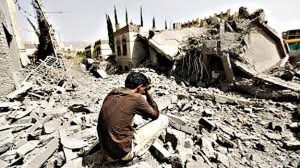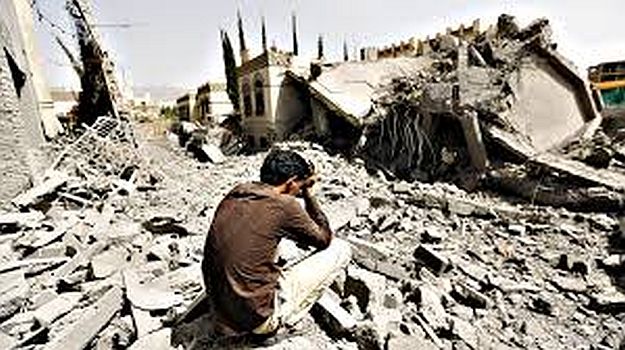
Since 2014, the tiny country of Yemen has been devastated by the ongoing civil war following the Houthi takeover of the government. It only worsened in March 2015, when President Barack Obama began to aid the Saudi Arabians in the war effort. As of February 2022, over 370,000 people have lost their lives due to the lack of food, the lack of medical necessities, and the bombings from the war.
Despite the severity of the war, the press has covered very little of it. Between 2015 and 2019, the media only covered about ninety-two minutes of the conflict. Based on the atrocities, this is shockingly low, especially when the media chose to cover the false Russian election meddling around the same time. MSNBC even went an entire year without mentioning what was happening in Yemen.
One might ask why the media isn’t covering this war. The reasoning for this is because the United States would be seen as bad guys.
We’re not the good guys here
Ever since its involvement in the war, the United States has done nothing but harm to the region. Not even a year into US involvement, the US was already being accused of war crimes by Human Rights Watch. They reported ten unlawful airstrikes in 2015 by the Saudi-led coalition, which led to over three hundred civilians dying and four hundred more wounded.
In October 2016, a Saudi Arabian bomb was dropped on a funeral ceremony in Sanaa, Yemen’s capital. Over one hundred people died and five hundred were wounded, many of whom were children. Footage shows charred and mutilated bodies strewn in and outside of the funeral hall.
Another horrible incident occurred in September 2018, when a bomb was dropped on a school bus out on a field trip. Many of the children on board were under the age of fifteen, most of whom died. To make things worse for the United States, these bombs were manufactured by the American company Lockheed Martin.
The Saudi-led coalition continued to harm the people of Yemen. They would target grain silos, livestock, horses, irrigation systems, trucks, and other components of the food distribution infrastructure.
The coalition has continued to make the humanitarian crisis even worse by installing a naval blockade on Yemen, which had become 90 percent dependent on international imports, thanks to the destruction of domestic food distribution.
If these pieces of news became more mainstream, then the American people would be irate at the US government. If any other country were doing the same thing (think Russia’s invasion of Ukraine), the American media would accuse that country of war crimes. Yet the US turns a blind eye to the crisis that it helped start.
The media can spin some events to make it seem like the Americans are the good guys, like in Syria, where the main antagonist of the American people was ISIS, a terrorist organization that had performed multiple attacks on American civilians and performed public beheadings. With the claims that Syrian president Bashar al-Assad was gassing his own citizens, it was easy to find support for the efforts of the US to oust ISIS from the region.
In contrast, Yemen is not so seemingly black and white. Between the Houthis wanting to seize power from the government and the conflict between the Houthis and Saudis, observers must process a lot of information.
None of the sides of the war are virtuous. The Houthis have killed zero American citizens. However, they have committed numerous human rights abuses and have engaged in torture.
The Saudis, on the other hand, have a vast military power, have committed mass executions that did not conform to international human rights and humanitarian laws, and have taken part in numerous war crimes. The American-made bombs that they are using to commit such crimes also complicate the issue.
Former secretary of defense, James Mattis, tried to justify the war by saying Iran was backing the Houthis in the war. News sites like Business Insider also claimed that the Houthis are being backed by Iran.
While it is true that Iran and the Houthis are friendly with each other, that does not mean the Houthi takeover of the government was backed by Iran. In fact, Iran had warned the Houthis against storming the capital city because it would provoke the Saudis.
The media also falsely claimed Iran was sending weapons to aid the Houthis. While there was a case where arms were found, it was leaving Yemen and entering Somalia. A former United Nations ambassador tried to prove Iran guilty of sending the weapons that were fired at Riyadh to the Houthis. However, the bomb she showed was a Burkan-2, which was locally fabricated. Iran has displayed Scud derivatives with shuttlecock-shaped warheads, but they do not match the Yemeni version, according to Scott Horton.
The situation is Ukraine has left the media even more unwilling to cover the war in Yemen. The situation has drawn much interest, with the United States sending over $100 billion in aid to Ukraine. With the war including the United States and Russia in some capacity, many have begun worrying about a nuclear war breaking out if the scenarios spin out of control.
With the media being silent about the ongoing conflict in Yemen, one wonders what other foreign policy atrocities the United States is hiding from the public.
